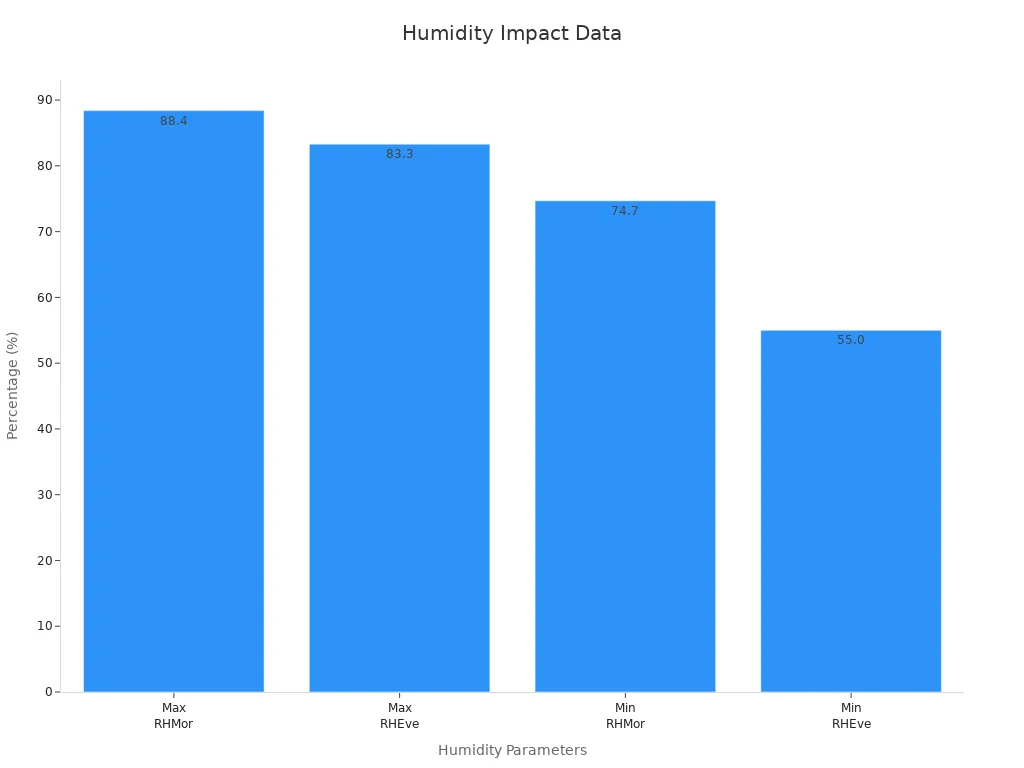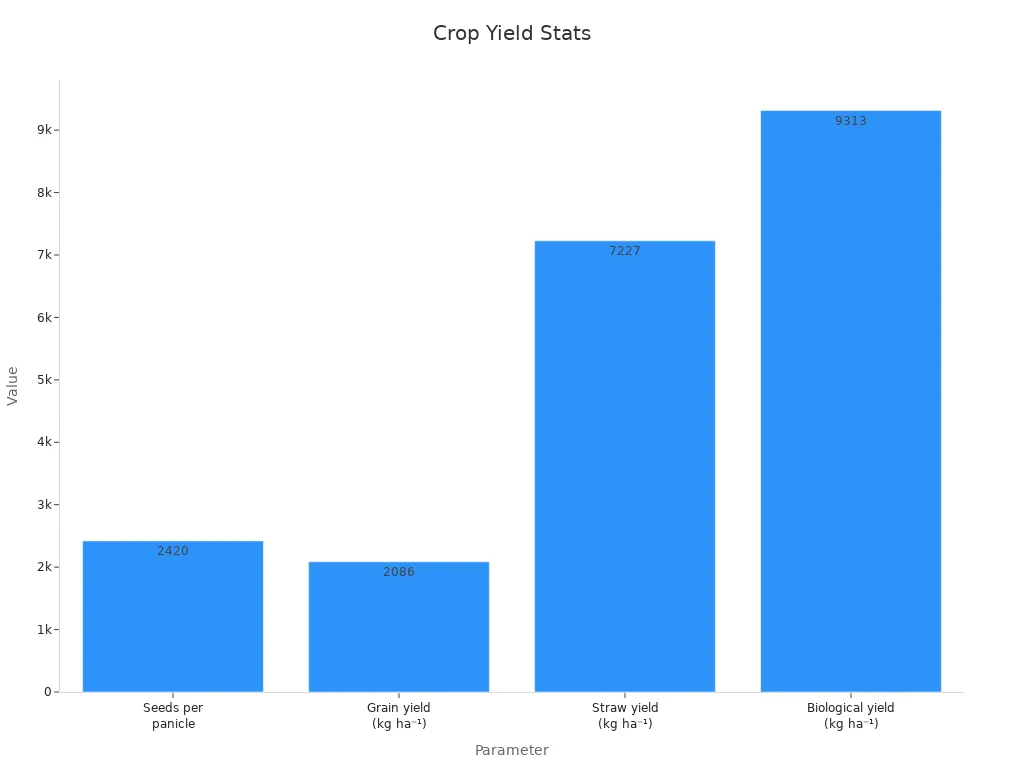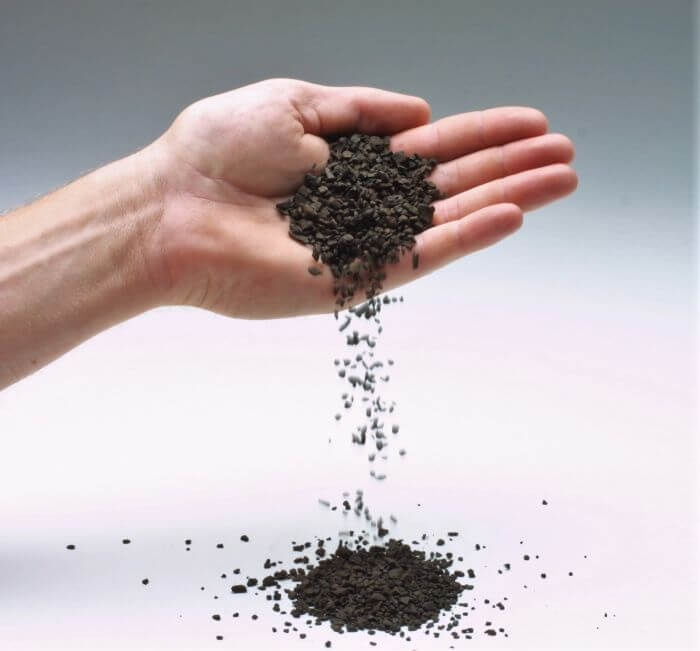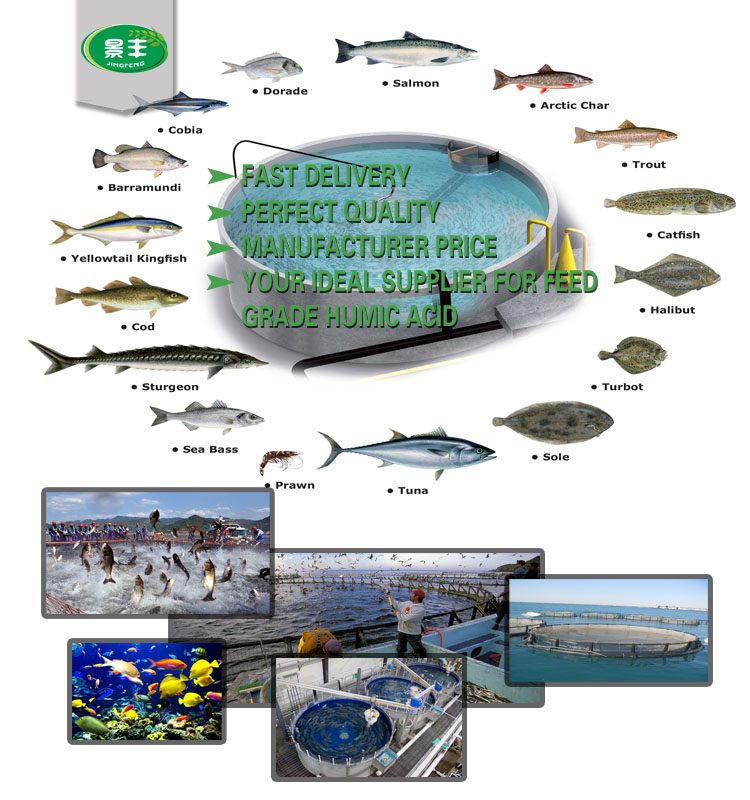- 1. Key Takeaways
- 2. What Is Utkarsh Vermicompost?
- 2.1. How It’s Made
- 2.2. Key Features
- 2.3. Why Farmers Choose It
- 3. Humic Acid Fertilizer Benefits
- 3.1. Soil Health
- 3.2. Crop Growth
- 3.3. Water Retention
- 4. Organic Solutions for Farmers
- 4.1. Utkarsh Neem Cake
- 4.2. Bio-Fertilizers
- 4.3. Product Synergy
- 5. Farmer Experiences
- 5.1. Positive Feedback
- 5.2. Challenges
- 6. Application and Convenience
- 6.1. How to Use
- 6.2. Tips for Best Results
- 6.3. Common Mistakes
- 7. Comparing Fertilizers
- 7.1. Organic vs Chemical
- 7.2. Why Choose Utkarsh
- 8. FAQ
- 8.1. What is Utkarsh Vermicompost made from?
- 8.2. How often should farmers apply Utkarsh Vermicompost?
- 8.3. Can Utkarsh Vermicompost replace chemical fertilizers completely?
- 8.4. Is Utkarsh Vermicompost safe for all crops?
- 8.5. What are the main benefits of humic acid in farming?
- 8.6. How should farmers store Utkarsh Vermicompost?
- 8.7. Can Utkarsh Vermicompost be used with other organic products?
- 8.8. Does Utkarsh Vermicompost help with pest control?
Utkarsh Vermicompost, a leading humic acid fertilizer, consistently receives praise from farmers for simplifying their work. Many report robust plant health, higher yields, and improved soil structure even during challenging weather.
| Parameter | Treatment (75% Inorganic + 25% Organic) | Observations/Notes |
|---|---|---|
| Seed Count per Panicle | 2420 seeds | Higher number of seeds per panicle with this treatment |
| Grain Yield | 2086 kg/ha | Comparable or better than 100% inorganic and 50% inorganic + 50% organic treatments |
| Net Returns | ₹61,204/ha | Highest net returns among treatments |
| Benefit-Cost Ratio (B:C) | 2.04 | Indicates economic viability of combined nutrient management |

Farmers highlight ease of use and noticeable improvements in crop performance. Their firsthand experiences demonstrate practical solutions that benefit both seasoned growers and newcomers.
Key Takeaways
- Utkarsh Vermicompost is a natural fertilizer made by earthworms breaking down organic waste, enriching soil with nutrients and helpful microbes.
- Using Utkarsh Vermicompost improves soil health by enhancing soil structure, increasing water retention, and supporting strong root growth.
- Farmers report higher crop yields, better plant growth, and healthier soil when they use Utkarsh Vermicompost regularly.
- Combining Utkarsh Vermicompost with Neem Cake and bio-fertilizers boosts pest control, nutrient supply, and overall crop performance.
- Applying the right amount of vermicompost and watering after use helps activate nutrients and supports better plant development.
- Organic fertilizers like Utkarsh Vermicompost improve long-term soil quality and reduce environmental risks compared to chemical fertilizers.
- Farmers should be patient during the transition to organic farming, as soil and crop improvements build up over time.
- Storing vermicompost in a dry, shaded place keeps it effective and easy to use for future planting seasons.
What Is Utkarsh Vermicompost?
How It’s Made
Utkarsh Vermicompost stands out as a premium organic fertilizer produced through a meticulous process involving earthworm decomposition. Skilled technicians introduce select earthworm species to organic waste materials, such as cow dung and crop residues. Over several weeks, the earthworms break down this organic matter, transforming it into nutrient-rich humus. This process not only increases the population of beneficial microbes but also enhances the availability of essential nutrients. Scientific studies show that earthworm activity can boost nitrogen uptake in crops like lettuce by over 10 mg per pot across multiple growing seasons. The earthworm population itself multiplies rapidly, increasing by more than tenfold within 60 days of vermicomposting. The resulting natural vermicompost contains high levels of humus, enzymes, and a diverse microbial community, all of which contribute to improved soil health.
Key Features
Utkarsh Vermicompost offers several features that make it a preferred choice for organic farming.
- High nutrient content: The product delivers balanced levels of nitrogen, phosphorus, and potassium, which are vital for plant growth.
- Enhanced soil structure: The humus and microbial activity improve soil aeration and water retention, reducing the risk of compaction.
- Consistent quality: The production process maintains optimal carbon-to-nitrogen ratios, ensuring reliable results for farmers.
- Eco-friendly composition: The absence of synthetic chemicals makes this fertiliser safe for the environment and beneficial for long-term soil fertility.
- Versatility: Farmers can use it across a wide range of crops, from vegetables to fruit trees and ornamental plants.
A table below summarizes some key findings from recent research on vermicomposting:
| Feature | Benefit |
|---|---|
| Earthworm population growth | Over 10–13 times increase in 60 days |
| Nutrient content (N-P-K) | Higher levels with optimal C/N ratios |
| Microbial activity | Improved with biochar and nano-carbon (optimal biochar at ~5%) |
| Humification | Enhanced by managing carbon bioavailability |
Why Farmers Choose It
Farmers select Utkarsh Vermicompost as a sustainable solution for their fields. They value its ability to restore soil fertility and support healthy crop growth without relying on synthetic inputs. Many appreciate the product’s role in reducing nitrogen loss, which leads to better nutrient efficiency and higher yields. Utkarsh Agrochem’s commitment to sustainable farming practices further strengthens trust among growers. The company encourages synergy by recommending the use of Utkarsh Neem Cake and bio-fertilisers alongside vermicompost. This integrated approach maximizes the benefits of organic amendments, ensuring robust plant development and long-term productivity. Farmers who adopt these practices often report improved soil texture, increased water retention, and healthier root systems. Utkarsh Vermicompost represents a reliable, eco-friendly choice for those seeking to elevate their organic farming operations.
Humic Acid Fertilizer Benefits
Soil Health
Humic acid fertilizer plays a vital role in transforming soil health. Farmers who use this organic amendment notice a marked improvement in soil structure. The humus and beneficial microbes in humic acid fertilizer help bind soil particles, creating a crumbly texture that promotes aeration. This structure allows roots to penetrate deeper and access nutrients more efficiently. The organic matter also increases microbial activity, which accelerates the breakdown of crop residues and releases nutrients over time. As a result, soils treated with humic acid fertilizer become more fertile and resilient. Many growers report that their fields recover faster from stress and show fewer signs of compaction. The consistent application of organic inputs like Utkarsh Vermicompost supports a thriving soil ecosystem, laying the foundation for sustainable farming.
Crop Growth
Farmers consistently observe stronger crop growth when they incorporate humic acid fertilizer into their nutrient management plans. The combination of organic nutrients and humic substances stimulates root development and enhances nutrient uptake. The following table summarizes key experimental results from fields using Utkarsh Vermicompost as part of an integrated approach:
| Parameter | Value (75% Inorganic + 25% Organic) |
|---|---|
| Number of seeds per panicle | 2420 |
| Grain yield (kg ha⁻¹) | 2086 |
| Straw yield (kg ha⁻¹) | 7227 |
| Biological yield (kg ha⁻¹) | 9313 |
| Plant height (cm) | Increased |
| Leaf area index | Increased |
| Dry matter accumulation | Increased |
| Chlorophyll content | Increased |

These results highlight the effectiveness of humic acid fertilizer in boosting yield and plant vigor. The synergy between organic amendments and humic substances leads to robust root systems and healthier foliage. Farmers also note that crops grown with humic acid fertilizer show improved resistance to environmental stress. Over time, this approach supports higher productivity and consistent harvests.
Water Retention
Humic acid fertilizer offers significant benefits for water management in agriculture. Soils enriched with organic matter and humic substances retain moisture more effectively. The following points summarize the impact of humic acid fertilizer on water retention:
- Humic acid increases soil water-holding capacity, reducing runoff and evaporation.
- Enhanced water retention ensures plants have access to moisture during dry periods.
- Long-term field studies show higher crop yields in soils treated with humic acid fertilizer due to improved moisture availability.
- Humic acid breaks up compacted soils, improving aeration and water infiltration, which further boosts water retention.
These advantages make humic acid fertilizer an essential tool for farmers facing unpredictable rainfall or drought. The organic approach not only conserves water but also supports long-term soil productivity. By choosing humic acid fertilizer, growers invest in a solution that benefits both their crops and the environment.
Organic Solutions for Farmers
Utkarsh Neem Cake
Utkarsh Neem Cake stands out as a powerful tool for farmers who want to embrace organic practices. This product serves a dual purpose. It enriches the soil with essential nutrients such as nitrogen, phosphorus, and potassium. At the same time, it acts as a natural pest deterrent. Farmers appreciate its ability to suppress soil-borne pests, including nematodes, without introducing harmful chemicals. The neem properties in the cake create an environment that discourages pest activity, supporting healthier crops. Many growers choose Utkarsh Neem Cake to maintain soil fertility and protect their fields, making it a cornerstone of organic farming.
Bio-Fertilizers
Bio-fertilizers play a crucial role in sustainable agriculture. These products contain beneficial microorganisms that enhance nutrient availability and improve soil health. When farmers use bio-fertilizers, they often see better crop growth and increased yields. Research on faba bean crops demonstrated that combining Rhizobium and phosphate solubilizing bacteria with mineral fertilizers led to higher yields and reduced disease severity compared to chemical fertilizers alone. The bio-fertilizer treatments improved nodulation, nutrient uptake, and plant growth. In addition, bio-fertilizers increased phosphorus availability and nitrogen fixation, which resulted in a better harvest index and biological yield. Studies also show that using bio-fertilizers in rice farming can reduce greenhouse gas emissions, supporting environmental sustainability. These findings highlight the value of bio-fertilizers in natural farming methods and their positive impact on both productivity and the environment.
Product Synergy
Utkarsh Agrochem promotes a comprehensive approach to organic farming by encouraging the combined use of its products. Farmers often pair Utkarsh Vermicompost with Neem Cake and bio-fertilizers to maximize benefits. This synergy creates a balanced nutrient supply and fosters a thriving soil ecosystem. The combination supports robust root development, improves water retention, and enhances disease resistance. By integrating multiple organic solutions, growers can reduce reliance on synthetic inputs and achieve long-term soil health. Utkarsh Agrochem’s strategy aligns with the principles of organic farming, offering farmers a reliable path to sustainable and productive agriculture.
Discover Utkarsh Organic Fertilizers
Boost your farm’s productivity sustainably with Utkarsh Vermicompost and Neem Cake. Learn more about these eco-friendly solutions today!
Tip: For best results, rotate organic amendments and monitor soil health regularly. This practice helps maintain nutrient balance and supports resilient crop growth.
Farmer Experiences
Positive Feedback
Yield Improvement
Many farmers have observed a noticeable increase in crop yields after switching to Utkarsh Vermicompost. They attribute this improvement to the product’s rich nutrient profile and enhanced soil biology.
“After using Utkarsh Vermicompost for one season, my paddy yield increased by almost 15%. The grains looked fuller, and the plants stood stronger against wind and rain,” reported Mr. Ramesh, a rice farmer from Maharashtra.
A group of vegetable growers in Gujarat shared similar results. They noted that their tomato and chili plants produced more fruit clusters per plant. The consistent application of vermicompost led to uniform crop growth and higher marketable produce.
| Crop Type | Reported Yield Increase | Farmer Location |
|---|---|---|
| Rice | +15% | Maharashtra |
| Tomato | +12% | Gujarat |
| Chilli | +10% | Gujarat |
| Wheat | +8% | Uttar Pradesh |
Farmers credit the improved yields to better nutrient availability and healthier root systems.
Soil Quality
Utkarsh Vermicompost has also helped farmers restore and maintain soil health. Many users have noticed that their fields retain moisture longer and show better tilth.
“The soil feels softer and holds water better. Earthworms have returned to my field, which is a good sign,” said Mrs. Kavita, who grows vegetables in Madhya Pradesh.
Some farmers observed that the soil color darkened, indicating higher organic matter content. They also reported fewer issues with soil crusting and compaction. Improved soil structure has made land preparation easier and reduced the need for frequent irrigation.
Ease of Use
Farmers appreciate the convenience of Utkarsh Vermicompost. The product comes ready to apply, with no need for complex mixing or special equipment.
- Application is straightforward. Farmers can broadcast it by hand or mix it into the soil during planting.
- The product does not emit strong odors, making it pleasant to handle.
- Utkarsh Vermicompost integrates well with other organic amendments, such as Neem Cake and bio-fertilizers.
“I save time during sowing because the vermicompost spreads easily and blends well with my regular practices,” shared Mr. Suresh, a smallholder from Punjab.
Challenges
Limitations
While most feedback is positive, some farmers have noted certain limitations. A few users mentioned that results may vary depending on soil type and crop selection.
Note: Farmers with sandy soils sometimes need to apply higher quantities to achieve the same benefits seen in loamy or clay soils.
Some growers found that the initial investment in organic inputs can be higher than traditional fertilizers. However, they often report that the long-term benefits outweigh the upfront costs.
Mixed Results
A minority of farmers experienced mixed results, especially during the transition from chemical to organic farming. Some observed that crop response was slower in the first season.
“My first harvest after switching to Utkarsh Vermicompost was not as high as I expected. But in the second year, the soil improved, and yields picked up,” explained Mr. Ajay, a wheat farmer from Haryana.
Other users pointed out that combining vermicompost with bio-fertilizers and Neem Cake produced the best outcomes. They recommend patience and consistent application for optimal results.
| Experience Type | Farmer Observation |
|---|---|
| Transition Period | Slower initial crop response, improved over time |
| Product Combination | Better results when used with Neem Cake and bio-inputs |
| Soil Type Variation | Higher doses needed for sandy soils |
Tip: Farmers suggest monitoring soil health regularly and adjusting application rates based on local conditions for the best results.
Application and Convenience
How to Use
Applying Utkarsh Vermicompost correctly ensures optimal results for crops. Farmers follow these steps to integrate the product into their farming practices:
- Preparation: Before application, farmers loosen the soil to improve aeration and nutrient absorption.
- Dosage: For field crops, they use 2–3 tons per hectare. For smaller plots, they apply 1–2 kilograms per square meter.
- Application Methods:
- Broadcasting: Farmers spread the vermicompost evenly across the field.
- Spot Application: For individual plants, they place vermicompost around the base of the stem.
- Mixing: Farmers incorporate vermicompost into the soil during planting or tilling.
- Watering: After application, they water the field to activate microbial activity and nutrient release.
Tip: Farmers often combine Utkarsh Vermicompost with Utkarsh Neem Cake or bio-fertilizers for enhanced results.
Tips for Best Results
Farmers maximize the benefits of Utkarsh Vermicompost by adopting proven strategies:
- Timing: They apply vermicompost during planting or early growth stages to support root development.
- Pairing Products: Farmers pair vermicompost with Utkarsh Neem Cake to deter pests and improve soil health. During flowering stages, they add Utkarsh MKP 00:52:34 for phosphorus-rich nourishment.
- Regular Monitoring: Farmers check soil health periodically to adjust application rates based on nutrient needs.
- Crop Rotation: Rotating crops prevents nutrient depletion and maintains soil fertility.
- Storage: Farmers store vermicompost in a dry, shaded area to preserve its microbial activity.
Note: Farmers recommend using vermicompost consistently across seasons to build long-term soil health.
Common Mistakes
Some farmers encounter challenges due to improper application. Avoiding these mistakes ensures better outcomes:
- Overapplication: Excessive use can lead to nutrient imbalances. Farmers follow recommended dosages to prevent this issue.
- Ignoring Soil Type: Sandy soils may require higher quantities of vermicompost. Farmers tailor application rates to their soil conditions.
- Skipping Watering: Without adequate moisture, microbial activity slows down, reducing nutrient availability. Farmers water fields immediately after application.
- Inconsistent Use: Sporadic application limits the cumulative benefits of vermicompost. Farmers apply it regularly for sustained soil improvement.
Alert: Farmers transitioning from chemical fertilizers should expect gradual improvements in soil health and crop yields.
By following these guidelines, farmers can unlock the full potential of Utkarsh Vermicompost and related products, ensuring healthier crops and sustainable farming practices.
Comparing Fertilizers
Organic vs Chemical
Farmers often weigh the benefits of organic and chemical fertilizers when choosing the best approach for their crops. Organic fertilizers, such as Utkarsh Vermicompost, improve soil structure, boost microbial activity, and support long-term soil health. Chemical fertilizers deliver nutrients quickly, but they may not enhance soil quality over time.
The following table summarizes key differences in crop performance between organic and chemical fertilizers:
| Parameter | Organic Fertilizer Effect (Relative to Control) | Inorganic Fertilizer Effect (Relative to Control) | Notes |
|---|---|---|---|
| Tomato Plant Height | +326.9% to +356.0% | Not specified | Organic fertilizer increased plant height significantly at 55 mL dose |
| Tomato Number of Leaves | +86.1% to +97.0% | Not specified | Organic fertilizer increased number of leaves |
| Tomato Leaf Area | +91.4% to +94.4% | Not specified | Organic fertilizer increased leaf area |
| Tomato Stem Girth | +69.2% to +70.3% | Not specified | Organic fertilizer increased stem girth |
| Tomato Fruit Yield | Increased up to 35 mL dose, then decreased | +19% compared to organic fertilizer at optimum | Organic fertilizer yield peaked at 35 mL; inorganic fertilizer outperformed organic at optimum dose |
| Cucumber Plant Height | +276.6% to +277.3% | Not specified | Organic fertilizer increased plant height significantly at 55 mL dose |
| Cucumber Number of Leaves | +190.5% to +195.5% | Not specified | Organic fertilizer increased number of leaves |
| Cucumber Leaf Area | +95.4% to +98.1% | Not specified | Organic fertilizer increased leaf area |
| Cucumber Stem Girth | +96.0% to +100% | Not specified | Organic fertilizer increased stem girth |
| Cucumber Fruit Yield | Increased up to 25 mL dose | +24% compared to organic fertilizer at optimum | Organic fertilizer yield peaked at 25 mL; inorganic fertilizer outperformed organic at optimum dose |
| Cucumber Fruit Yield Increase | +84.8% to +497.1% (various doses) | Not specified | Inorganic fertilizer increased fruit yield substantially compared to control |
| Leaf Nutrient Concentrations | Increased up to 35 mL dose, then decreased | Higher N, P, K, Ca, Mg than organic fertilizer | Inorganic fertilizer resulted in higher nutrient concentrations in leaves |
Field studies show that both organic and chemical fertilizers can increase crop yields. Organic fertilizers often enhance plant growth, leaf area, and stem girth, while chemical fertilizers may provide a higher nutrient concentration in leaves and sometimes higher yields at optimal doses. However, organic farming practices improve soil health and increase beneficial compounds in crops, such as phenolics and organic oxygen compounds. Chemical fertilizers tend to upregulate different metabolites, including flavonoids and cinnamic acid derivatives. Both types of fertilisers can achieve similar yield improvements, but their impact on soil and crop quality differs.
Organic farming also supports environmental sustainability. Manure and bio-fertilizers can replace chemical fertilizers in crops like saffron, maintaining yields while improving soil structure and reducing environmental risks. Farmers who use organic methods often report better soil texture and increased biodiversity in their fields.
Note: Organic fertilizers release nutrients slowly, reducing the risk of leaching and groundwater contamination. Chemical fertilizers, while effective, may contribute to soil degradation and water pollution if overused.
Why Choose Utkarsh
Farmers select Utkarsh Vermicompost and related organic solutions for several reasons. Utkarsh products support sustainable agriculture by improving soil fertility and promoting healthy crop growth. Many growers notice that their fields retain moisture better and show improved root development after switching to Utkarsh Vermicompost.
Utkarsh Agrochem offers a comprehensive range of products that work together to maximize benefits. Farmers can combine Utkarsh Vermicompost with Neem Cake and bio-fertilizers to create a balanced nutrient supply. This synergy leads to robust plant growth and higher yields, especially when used consistently as part of an organic farming system.
Cost-effectiveness also plays a role. While the initial investment in organic products may be higher, farmers often see long-term savings through reduced need for chemical inputs and improved soil productivity. Utkarsh’s commitment to quality and sustainability gives farmers confidence in their choice.
Tip: Farmers who adopt Utkarsh’s organic solutions often report healthier crops, improved soil structure, and greater resilience to environmental stress.
Utkarsh Vermicompost stands out as a reliable option for those seeking to embrace organic farming and achieve sustainable, productive harvests.
Utkarsh Vermicompost makes farming easier for many growers, as real-world feedback shows. Farmers report improved yields, healthier soil, and simple application. Some users note that results improve with consistent use and product combinations.
Real experiences highlight the value of sustainable choices.
- Explore more about organic and humic acid fertilizers for better farm health.
- Consider joining farmer forums or reading case studies for deeper insights.
Farmers who choose Utkarsh products invest in long-term productivity and environmental care. ?
FAQ
What is Utkarsh Vermicompost made from?
Utkarsh Vermicompost uses organic waste materials such as cow dung and crop residues. Earthworms decompose these materials, producing nutrient-rich humus, enzymes, and beneficial microbes that improve soil health.
How often should farmers apply Utkarsh Vermicompost?
Farmers typically apply Utkarsh Vermicompost at the start of each planting season. For best results, they may also use it during key crop growth stages. Regular application builds long-term soil fertility.
Can Utkarsh Vermicompost replace chemical fertilizers completely?
Many farmers transition to Utkarsh Vermicompost as their primary fertilizer. Some combine it with minimal chemical inputs during the initial switch. Over time, consistent use can reduce or eliminate the need for synthetic fertilizers.
Is Utkarsh Vermicompost safe for all crops?
Yes, Utkarsh Vermicompost suits a wide range of crops, including vegetables, grains, fruit trees, and ornamental plants. Its organic composition supports healthy growth without harming sensitive species.
What are the main benefits of humic acid in farming?
Humic acid improves soil structure, increases water retention, and boosts nutrient availability. Farmers notice stronger root systems, higher yields, and better resistance to drought and stress.
How should farmers store Utkarsh Vermicompost?
Farmers should store Utkarsh Vermicompost in a dry, shaded area. Proper storage preserves microbial activity and nutrient content, ensuring the product remains effective for future use.
Can Utkarsh Vermicompost be used with other organic products?
Yes, Utkarsh Vermicompost works well with Neem Cake, bio-fertilizers, and water-soluble nutrients. Combining these products creates a balanced nutrient supply and supports sustainable farming.
Does Utkarsh Vermicompost help with pest control?
While Utkarsh Vermicompost improves plant health and soil resilience, farmers often pair it with Utkarsh Neem Cake for natural pest deterrence. This combination protects crops and reduces reliance on chemical pesticides.







